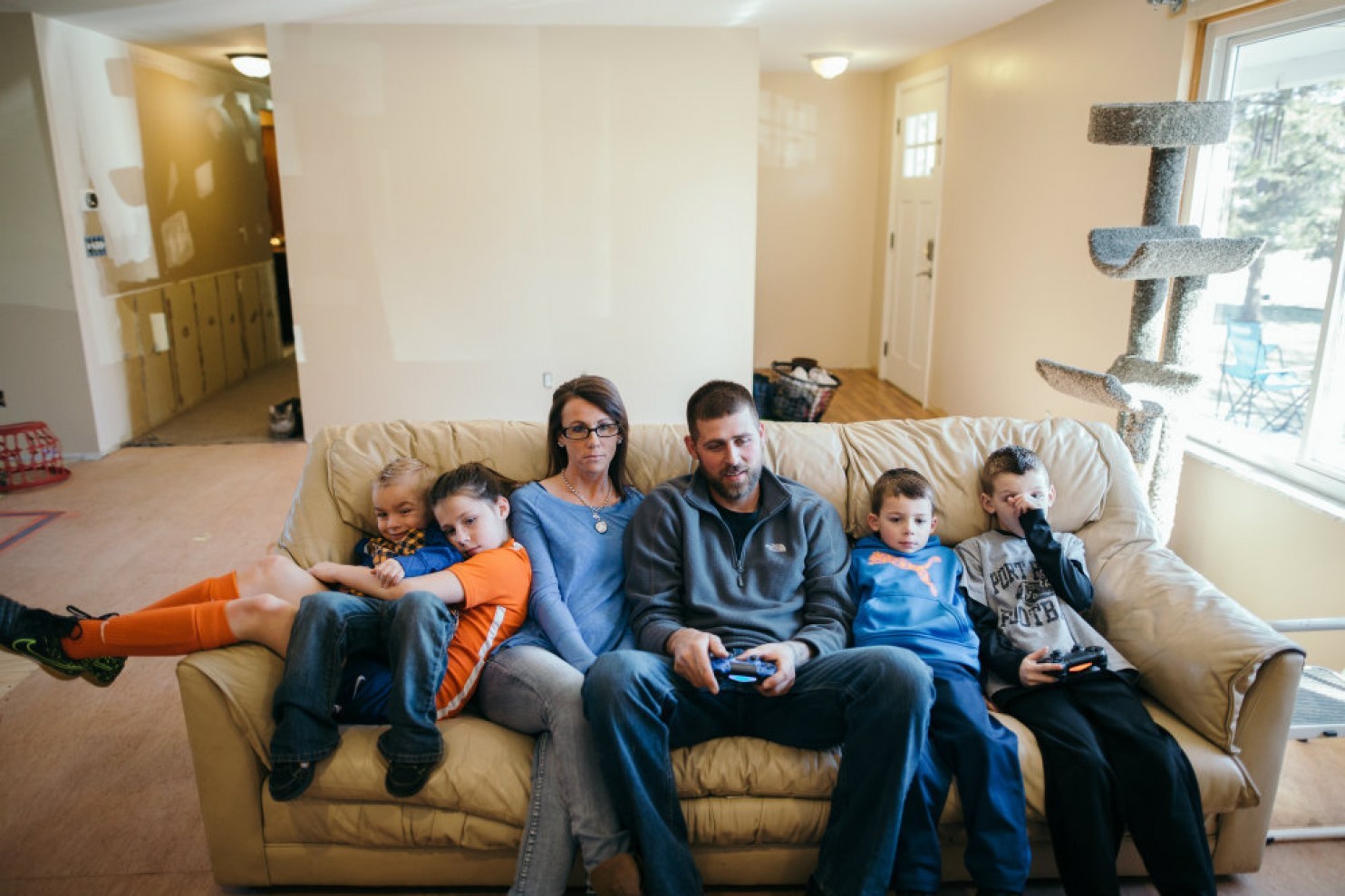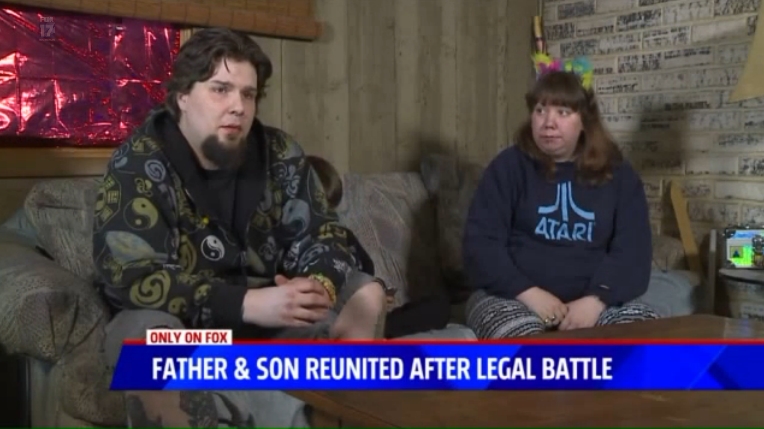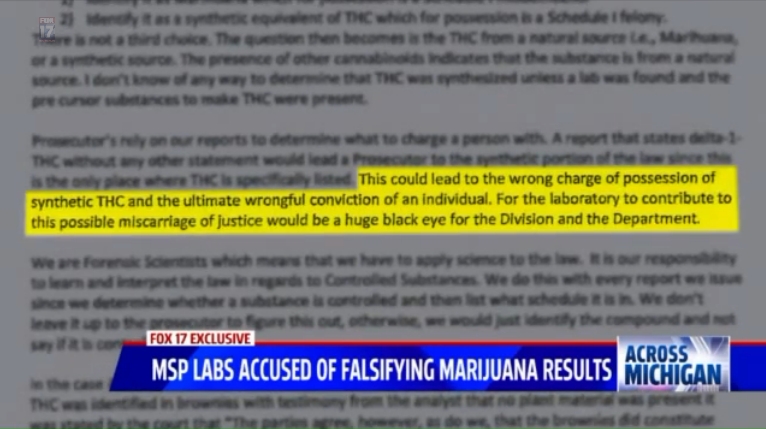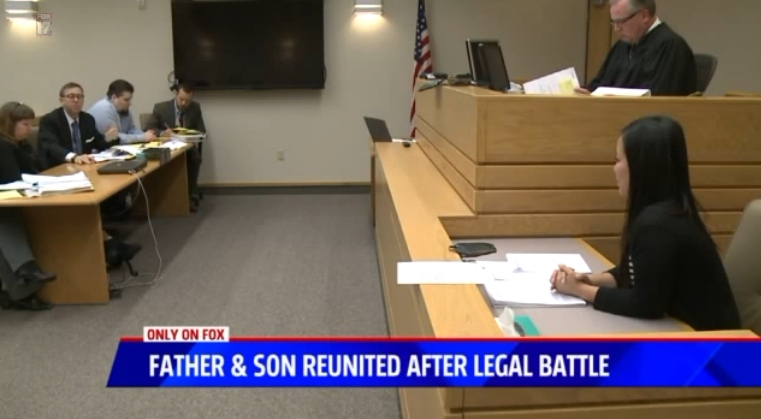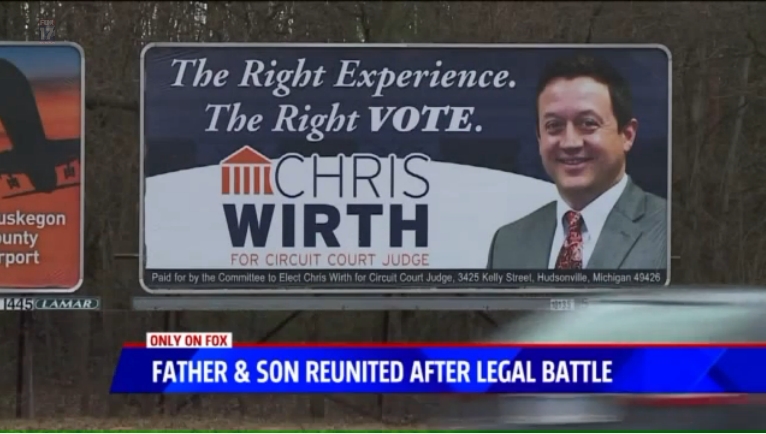
Oct 15, 2016 | Blog, News, Recent Victories, Uncategorized, Victories Project
Last night’s episode of VICELAND’s Weediquette focused on how police forces in Michigan are using civil asset forfeiture to target legally run medicinal marijuana businesses in the state.
Weediquette host Krishna Andavolu – about his reflections after filming the episode; an edited and condensed version of his comments are below.
READ THESE REGARDING SHATTUCK
Komorn Law – Shattuck Case
In Michigan, medical marijuana is legal—but last year, arrest rates were on the rise. Why? It seems like marijuana legalization is meant to at least take the drug out of the realm of the criminal justice system, but while doing research for this season of Weediquette, we found out that there’s still a strong incentive for police officers to go after legal marijuana growers in Michigan. The doctrine that the incentive is based off of is called civil asset forfeiture—which means that if a cop busts you, he or she can take your stuff in addition to throwing you in jail and charging you.
Even though medical marijuana growers have cards that say that they’re legally allowed to grow, civil asset forfeiture incentivizes police departments in Michigan to pursue really small technical violations
—For instance, if there’s a lock on a door that isn’t secure enough, or a key to a room in your grow house or dispensary is left on a counter when it should’ve been in a safe space. So law enforcement targets medical marijuana growers, finds enough evidence to justify a raid, takes all the growers’ stuff, and then makes an excuse for it after the fact.
It’s tough for Michigan cops. The state’s economy is pretty bad, and a lot of their police departments aren’t funded particularly well—so the police are using the doctrine of civil asset forfeiture to target mom-and-pop businesses. One of those businesses was run by the Shattucks, a family we visited who decided to go into the medical marijuana business because they saw people using it and thought it would be a good business to try for a couple of years to raise some capital to go into real estate. They were after the American dream, small business ownership.
However, the St. Clair County drug task force got wind of what they were doing, raided their grow facility, dispensary, and home, and took more than $80,000 worth of their goods. Losing the money and goods was bad enough—but their kids were also at home when the SWAT team came through the door, so their nine-year-old daughter is the one who saw the door broken down and men with guns rushing in.
You could look at the Shattucks and say, “I’m sure they were doing something wrong.” But a SWAT team seems like a disproportionate reaction. It’s an issue of how you implement medical marijuana legalization, but also of what we ask for in our community policing. What’s the relationship between those who are being policed and the police themselves? How do you balance making sure that the marketplace is legitimate while also respecting the people who are already operating legitimately in the marketplace? The Shattucks did everything they could to show the cops that they were doing the right thing—they met with the police department and showed the cops all their paperwork—but that didn’t stop the police from going after them two months later.
Another family we talked to, the Fishers, were in a hearing about a similar criminal case against them, and under cross-examination, the police officer who conducted the raid was asked if he questioned the family about whether they had medical marijuana cards—and he said no. There aren’t lawmakers who are trying to crack down on this stuff, so in a lot of cases drug task forces have no legislative oversight, meaning it’s up to individual cases in court to set any sort of precedent.
On Weediquette, we cover a lot of different stories—stories about medicine and recreational drug use—and this story is about how pot has always made it easy for law enforcement to go after vulnerable communities. We’re on a trajectory where medical marijuana and marijuana in general is going to become legal—it feels inevitable and that the war on drugs will also inevitable fade away—but stories like this bring to light that there’s a lot to still fight for.
WATCH THE TV EPISODE
https://www.viceland.com/en_us/show/weediquette-tv

May 5, 2016 | Blog, Michigan Medical Marijuana Criminal Defense Attorney Michael Komorn, News, Recent Victories, Victories Project
The Criminal Defense Attorney of Michigan’s Award Committee has selected Michael J. Komorn as the recipient of their Right to Counsel Award. This award recognizes the amazing contributions of a group or individual in the form of legal representation or other extraordinary service.
Komorn was recognized at CDAM’s Annual Dinner and Awards Banquet, Friday, March 11, 2016, at the Troy, Marriott.
Said CDAM President Patricia A. Maceroni, “CDAM is delighted to recognize Michael Komorn for his extraordinary work in uncovering testing irregularities at the Michigan State Police Forensic Crime Lab while representing his client, Max Lorincz, pro bono.”
While defending Lorincz, Komorn obtained emails through the Freedom of Information Act uncovering recent changes in Crime Lab policies. These policies allowed for the reporting of marijuana abstract residue as “origin unknown.
Said Komorn during a recent interview with Michigan Radio, “The lab specifically changed their policy to report these things in a way that they could arrest patients or caregivers, instead of honoring the protections of the Michigan Medical Marijuana Act.”wn” allowing prosecutors to charge someone with having synthetic THC, a felony, rather than marijuana, a two year misdemeanor.
Said Komorn during a recent interview with Michigan Radio, “The lab specifically changed their policy to report these things in a way that they could arrest patients or caregivers, instead of honoring the protections of the Michigan Medical Marijuana Act.”
In January 2016, Komorn was successful in getting Max Lorincz’ two year felony charge dismissed.

Apr 8, 2016 | Blog, Criminal Defense Attorney Michael Komorn, Medical Marijuana Attorney Michael Komorn, News, Victories Project
SPRING LAKE, Mich. — After 18 months, a Spring Lake family’s son is out of foster care and reunited with his parents. Yet the fight to be together, through court battles and serious drug charges despite being card-carrying medical marijuana patients, still haunts them.

Thursday, Max Lorincz’s son Dante, 6, picked out his favorite toys from a basket in the family’s living room, handing one to FOX 17 saying, “this is my dad’s favorite.”
Piece by piece, Max and his family are putting their lives back together.

“It’s like 100 pounds being lifted off my chest,” Lorincz said. “It’s like our entire life was put on hold the entire time he was gone.”
Dante was ripped away from the couple after Max was charged with a felony for possession of “synthetic THC.” Between family and criminal court cases, it’s an experience they call hellish.
“It’s not something I’d wish on my worst enemy, the experience we went through,” Lorincz said.
“[Dante] is 6 now, almost 7, you know he’s his own little person at this point. But before, he was just coming into his own, and we missed that entire portion of his life.”
It is a bizarre case FOX 17 first uncovered: the judge handling the criminal case ultimately threw out the charge 16 months later.
September 2014 it all started when police found a thumbprint of hash oil at Lorincz’s home during an unrelated medical emergency. That lead to a felony charge for a charge the judge later ruled unfounded: possession of “synthetic THC.”

A previous, now controversial Michigan State Police policy change in the state’s crime labs requires forensic scientists to write “origin unknown” when testing marijuana without plant matter visible.
Fast-forward 16 months, a judge drops Lorincz’s felony. But the court battles continued in family court for Lorincz and his wife to regain custody of Dante for another two months against Bethany Christian Services.
Only FOX 17 cameras were in court for several permanency planning review hearings including last November during this exchange between Lorincz’s Attorney Michael Komorn and the Bethany Christian Services caseworker:

“What is it, other than [Lorincz’s] use of marijuana, that creates bad parenting?” asked Komorn of the caseworker.
She testified, “Marijuana is a psychoactive substance, and being under the influence doesn’t allow you to be in the most clear mind for your child.”
This woman was the third of five total caseworkers now in the 18-month family court case representing Bethany Christian Services. The agency threatened to petition for permanent removal of Dante from his parents.
In this November hearing, the judge already allowed Lorincz, a legal card holder, to continue use of medical marijuana. The caseworker here on the stand testified that marijuana, even legally used for medical conditions, may make an unfit parent. This was a sticking point in many of these permanency planning review hearings, but ultimately she testified BCS had no evidence to prove drug abuse.
Komorn continued to ask her, “One of the reasons for you to recommend the permanent removal is because of drug substance issues, am I right?”
To which the caseworker said, “Yes.” Komorn continued with, “Ok, and we’ve already clarified that there are no drug substance issues at all regarding my client [Lorincz], am I right?”
She testified, “Yes, yes.”
Now, weeks later, another slap in the face for the Lorincz family: a billboard popping up several blocks from their home on 144th Avenue, with the face of Attorney Chris Wirth, who advocated for their son, working against them in their custody fight.

Lorincz and his family are moving on, but he continues to call for clarified medical marijuana patient rights in Michigan, for the medicine he says saved his life.
“2009 when he [Dante] was being born, he was born in Butterworth Hospital, I was dying of liver failure in Blodgett Hospital across town. It was due to my doctor prescribing too much medication,” Lorincz said.
And the 18 months Lorincz spent legally removed from his son, he reminded, they will never get back.
“We’ll try and make as many positive memories as we can to make up the gap,” Lorincz said. “But there’s definitely nothing that’ll replace the time that we lost, that’s for sure.”
The Lorincz’s have started this GoFundMe page, asking for any help to cover their expenses at this time.

Sep 21, 2015 | Blog, Criminal Defense Attorney Michael Komorn, Komorn Law Blog, News, Recent Victories, Victories Project
By Attorney Michael Komorn
” Lieutenant, this lawyer is a pain in the ass, I can’t stand him, I really hate him”
This was my client’s observation of the prosecutor after exiting the conference room she and I had been in for over an hour discussing and negotiating a possible resolution of his 2 count felony, 1 misdemeanor case.
These were the words my client told me he heard coming out of the prosecutor’s mouth as she stood in the hallway asking, begging the officer in charge to approve of or sign off on the demands I had made during our negotiations.
In the moments before this conversation took place I had made it clear to the prosecutor what I thought of the case against my client.
As it goes in many criminal cases the facts of what actually transpired were in dispute.
The criminal case involving under cover and vice officers, no video, audio or even written recordings are made during the investigation.
These type of “typical” investigations result in cases that revolve around the credibility of the officers. When a prosecutor has a police witness who will assert a fact in a case it is considered the gospel. It is believed that if the officer testified to that fact, independent of any counter facts or versions that differ, it will be believed.
Often the prosecutor in these situations will say during Pre-trial discussions sometime with the officer sitting in the same room, ” counsel are you saying the officer isn’t being honest?
It is these scenarios that we are grateful that we have jury trials so that peers within the community can decide who is telling the truth. But getting the prosecutor to believe the version of the facts that are told by the defendant and disregard the police officer version never happens. This case was a case filled with complete adverse and disputed facts.
Prior to the court proceedings we had done an extensive independent investigation and had uncovered witnesses that observed or were aware of the events alleged in the police reports. I realized these unknowns to the police witness observations were in conflict with the gospel of the police officer witness.
These scenarios usually lead to trials.
These scenarios are why we have trials.
These scenarios never result in the prosecutor abandoning their police officer witness and taking the side of the defendants version of the facts.
Prosecutors never agree with defense attorneys that their police officers versions are in error or untrue.
My strategy was let the prosecutor know that she was going to have to accept my clients version or we would be going to trial.
The prosecutor was obviously unaware that her conversation and advocacy to do what I wanted on the phone was within earshot of my client. During these moments I remained in the conference room and while I was aware she was calling the officer in charge I had no idea and could not hear what her she was actually saying to the officer in charge.
Shortly thereafter the prosecutor came back into the room to explain that they had capitulated and agreed to dismiss all felony charges in exchange for a no contest plea to an innocuous misdemeanor. As I was relaying this information to my client he explained what he had overheard the prosecutor saying about me to the officer in charge.
Michael, I was wondering what was going on in the conference room because when the prosecutor came out of the room and got on the phone she keep telling the person she was talking to how much she hated you and what a pain in the ass you were.
But wait it, the observations in the theatre of so called justice gets even better.
After we secured the charge reduction, dismissal of all felonies and misdemeanors and a no contest plea to the innocuous misdemeanor we still needed the pursued the judge to a sentence that also included everything that we wanted or that was acceptable.
It was late in the morning and most of the cases had cleared out and been resolved. The court room had become empty when me and my client entered the Court with my intentions to discuss sentencing with the Judge.
As it goes the judge invited me ( the prosecutor had waived her presence for these discussions) into her chambers which were immediately behind the Judges Bench. and unbeknownst to me the Judges Chambers also are within “yelling” earshot of anyone who was or remained in the Courtroom.
This scenario and positioning I am describing was also observed by client who also watched me enter the Court room and then leave with the Judge into her adjoining chambers.
While I would like to describe what took place over the next 10 minutes with the Judge in her chambers as a healthy academic debate about current morals and virtues what my client heard was loud voices and yelling.
Of course my client couldn’t see or hear the softer spoken words that the judge and I agreed upon or the friendly handshake she and I had after our academic ” discussion” about morality.
Which is why when I exited the Judges chambers to return to my clients side I could tell he was scared out of his mind.
What happened in there…? my client asked.
I said the judge and I had a healthy debate and she is going do what we want at sentencing.
Really, said my client, because from where I was sitting it sounded like the judge hated you. I smiled and said she is going to do what we want for sentencing.
We left the court room, and went outside into the parking lot and walked together to our cars. As the morning sun was turning to midday my client turned to me thanking me for the outcome and reflected upon his observations.
Michael, everyone in that building seemed to hate your guts. I heard the prosecutor saying how much she disliked you and then it sounded like the Judge was going to lock you up. Despite that he said we got everything that we wanted and I couldn’t be happier.
I realized at this time the perspective by which he had observed the events from his day in Court.
Everyone hated his lawyer, me. Yelling and disdain are the emotions and reactions that he had observed. He described his emotions as total fear when he heard prosecutor talk ill of me and the judge screaming at me from her chambers.
Yet as we stood in the parking lot and his case was resolved he explained his joy and how happy he was with the way things turned out.
There is a joke somewhere that begins with lawyers have thick skin or when can you tell a lawyer is offended … I am not sure what the punch line is but I do know that my client’s reflection on the events of the day and how the hatred and disdain for me brought about the favorable resolution of his case.
I was emotionally devoid of any care of concern of who liked me or hated me.
Being a lawyer is not a popularity contest. It is a commitment to get the best results possible for my client.
Lawyers strategize and the negotiation process can be a disaster if a good strategy is not employed for the process. Sometime the discussions are friendly sometimes they are not. But this experience may be the first where the disdain for me and my involvement in the case was the catalyst to our favorable resolution.
I could be wrong but I really don’t think that the prosecutor hates me, instead she knows that if we are going to litigate the case I am going to make her life miserable by litigating, advocating and fighting the case till the end.
This is not hate in my eyes but respect. Likewise much of the yelling from the judge’s chambers actually was my voice as I encouraged the Judge to see things my way and not her silencing me or yelling over me.
In other words the loud academic debate was meaningful and needed to take place.
On the other hand maybe they do all hate me and maybe my skin is thick, and if that is the case then let their hatred be revered.
